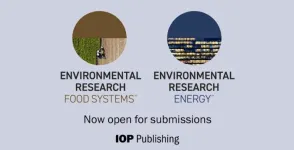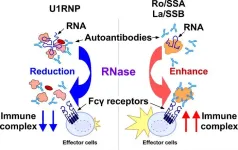(Press-News.org) CEPI, the Coalition for Epidemic Preparedness Innovations, and the Houston Methodist Research Institute (HMRI), have today announced a partnership to combine cutting-edge artificial intelligence (AI) technology with established laboratory techniques to speed up development of future vaccines against novel viral threats (also known as Disease X). HMRI will lead a consortium including experts from Argonne National Laboratory (University of Chicago), J Craig Venter Research Institute, La Jolla Institute, The University of Texas Medical Branch, and The University of Texas, Austin.
CEPI will provide up to US$4.98 million to HMRI to advance the application of AI to analyse the structures of viruses from priority viral families from which the next Disease X is likely to emerge. These AI approaches will be used to identify target pieces of protein in the virus that stimulate the immune system, known as epitopes. The HMRI-led consortium will initially focus their efforts on paramyxoviruses and arenaviruses, viral families which include the likes of Nipah virus and Lassa virus, respectively.
AI experts from the HMRI, University of Texas-Austin, La Jolla Institute, and Argonne National Laboratory (University of Chicago) will use machine-learning approaches to optimise the design of potential epitopes. The University of Texas Medical Branch will then validate the immunogenicity of these potential vaccine candidates using established preclinical models.
Should a new pathogen emerge in future, vaccine developers could quickly respond by selecting AI-identified epitopes that would have already been validated in preclinical tests, thereby enabling vaccine candidates to be moved quickly into clinical testing.
Expanding use of AI for pandemic preparedness
In June, 2023, CEPI announced a partnership with the University of Leipzig to use the Rosetta Macromolecular Modelling platform to generate state of the art immunogen designs and speed up development of future vaccines against novel viral threats. In November, 2022, CEPI also partnered with University of California, Davis to support application of AI to expand their “SpillOver” platform to inform prioritisation of viral families with epidemic or pandemic risk.
Vaccine Library key to pandemic preparedness
Preparation of pathogen targets and vaccines through pre-clinical and clinical testing before an outbreak of a novel pathogen will streamline the development of future vaccine candidates against Disease X, potentially within 100 days of identification. This effort to compress pandemic vaccine development down to just 100 days is known as the 100 Days Mission and has been embraced by the G7 and G20.
Achieving the 100 Days Mission would give the world a fighting shot to stop the next pandemic-causing Disease X in its tracks. CEPI has a $3.5 billion plan that, over the next 5 years, will kickstart and coordinate the work necessary to achieve this mission.
A critical enabler of the 100 Days Mission is the establishment of a global ‘Vaccine Library’: a globally accessible store of scientific knowledge, data and prototype rapid-response vaccine candidates against selected viruses from the 25 viral families known to infect humans. Components in the Vaccine Library can be swiftly utilized if a novel pathogen with pandemic potential emerges, significantly accelerating the vaccine development process
CEPI’s aim is to store AI-generated, lab-tested and verified antigen designs developed by the HMRI consortium in the Vaccine Library so they can be quickly used to develop vaccine candidates in the event of an outbreak of a novel pathogenic threat. In this scenario, these antigen designs could be taken “off the shelf”, once the gene sequences of the virus causing the outbreak is known, which could then be inserted into an appropriate rapid-response vaccine platform to start production of vaccines for clinical testing.
Beating the next Disease X
An outbreak of a future Disease X is inevitable. Forces such as globalisation, urbanisation, and climate change are increasing the likelihood and frequency of such outbreaks, but that inevitability does not mean the world is destined to relive the devastating impacts of COVID-19. The scientific advances forged in response to COVID-19 have equipped the world with the tools and concepts that would enable us to interrupt outbreaks in the future before they spiral out of control.
In November, 2022, CEPI published a landmark report entitled “What Will It Take” that outlined the paradigm shift needed to speed up vaccine development even more, highlighting the crucial scientific and technological innovations (including the creation of a vaccine library) that will enable the world to develop new vaccines against future pandemic threats in just 100 days.
Non-exclusive access to the components of the Vaccine Library—including virtual antigen designs—will be available to CEPI partners and other developers who agree to enable equitable access to vaccines and other countermeasures against pathogens with epidemic or pandemic potential derived from the Library, in line with CEPI’s equitable access policy.
Dr Richard Hatchett, CEO of CEPI, said: “Stopping the next pandemic threat will require rapid development—within 100 days—of safe and effective vaccines against emerging infectious pathogens. A crucial enabler of this 100 Days Mission will be the establishment of a Global Vaccine Library.
“Building the Vaccine Library is a huge task which cannot be achieved by any one country or organization working alone. It will require coordinated investments in countermeasure development and, in outbreak situations, rapid data sharing.
“For its part, CEPI is making key investments to help the world solve many of the challenges of vaccine design in advance of an outbreak of a virus with pandemic potential. Advances in AI technology are making this possible by revolutionising how we identify potential vaccine targets, laying the foundations for a library of AI-generated antigen designs ready to use against future pandemic threats.”
H. Dirk Sostman, M.D., President of the Houston Methodist Academic Institute, said: “We are delighted to have Houston Methodist Academic Institute be a part of this program, serving our community and the world. Leading this consortium is an amazing undertaking and a testament to the work that Dr. Jimmy Gollihar, his team in pathology and genomic medicine, and many others in our academic institute are doing to help defeat the next pandemic”.
About CEPI
CEPI is an innovative partnership between public, private, philanthropic, and civil organisations, launched at Davos in 2017, to develop vaccines against future epidemics. Prior to COVID-19, CEPI’s work focused on developing vaccines against the Ebola Virus Disease, Lassa virus, Middle East Respiratory Syndrome coronavirus, Nipah virus, Rift Valley Fever virus and Chikungunya virus. It has over 20 vaccine candidates against these pathogens in development. CEPI has also invested in new platform technologies for rapid vaccine development against unknown pathogens (Disease X).
During the COVID-19 pandemic, CEPI initiated multiple programmes to develop vaccines against SARS-CoV-2 and its variants with a focus on speed, scale and access. These programmes leverage the rapid response platforms developed by CEPI’s partners prior to the emergence of COVID-19, as well as new collaborations. The aim is to advance clinical development of a diverse portfolio of safe and effective COVID-19 candidates and to enable fair allocation of these vaccines worldwide through COVAX.
CEPI’s 5-year plan lays out a $3.5 billion roadmap to compress vaccine development timelines to 100 days, develop a broadly protective vaccine against COVID-19 and other betacoronaviruses, and create a “library” of vaccine candidates for use against known and unknown pathogens. The plan is available at https://endpandemics.cepi.net.
Follow our news page for the latest updates. Follow us via @CEPIvaccines, @DrRHatchett, and on LinkedIn.
To read more about how the world can work together to #endpandemics, check out DISEASE X – The 100 Days Mission to End Pandemics, by CEPI’s Chief Scientific Writer Kate Kelland, available here at Bookshop.org. All author proceeds go to the World Health Organization Foundation’s COVID-19 Response.
About Houston Methodist
Houston Methodist is one of the nation’s leading health systems and academic medical centers. The health system consists of eight hospitals: Houston Methodist Hospital, its flagship academic hospital in the Texas Medical Center; six community hospitals; and one long-term acute care hospital throughout the Greater Houston area. Houston Methodist also includes a research institute; a comprehensive residency program; a physician organization; international patient services; freestanding comprehensive care, emergency care and imaging centers; and outpatient facilities. Houston Methodist employs approximately 30,000 people and has had more than 1.9 million outpatient visits and more than 138,000 admissions in 2022.
U.S. News & World Report has named Houston Methodist Hospital the Best Hospital in Texas for 11 years in a row. Houston Methodist is the No. 1 hospital in Texas and No. 15 in the nation. For more information about Houston Methodist, visit houstonmethodist.org. Follow us on Twitter, Facebook and On Health.
Media Contacts:
CEPI
Email: press@cepi.net
Phone: +44 7387 055214
Houston Methodist
Gale Smith
Email: gsmith@houstonmethodist.org
Phone: 281.627.0439
END
Using AI to speed up vaccine development against Disease X
2023-07-18
ELSE PRESS RELEASES FROM THIS DATE:
Japanese beetles could spread throughout Washington state in 20 years
2023-07-18
PULLMAN, Wash. – Without intervention, the colorful but devastating Japanese beetle could make its way across the evergreen state within two decades, according to a study of their potential dispersion.
The iridescent, green-and-copper beetles damage plants by “skeletonizing” their leaves, chewing up all the soft green parts between the veins. They eat over 300 plants and pose a serious threat to Washington agriculture as some of their favorite crops include grapes, hops and cherries.
Once established, Japanese beetles are tough to eradicate, but it may be possible to keep them under control, said David Crowder, a Washington State University entomologist.
“These ...
Will artificial intelligence (AI) end civilization? Lero researchers seek public's views on AI and software
2023-07-18
Will artificial intelligence (AI) end civilisation? Researchers at Lero, the Science Foundation Ireland Research Centre for Software and University College Cork, are seeking help determining what the public believes and knows about AI and software more generally.
Psychologist Dr Sarah Robinson, a senior postdoctoral researcher with Lero, is asking members of the public to take part in a ten-minute anonymised online survey to establish what peoples’ hopes and fears are for AI and software in general.
“As the experts debate, little attention is given to what the public thinks – and the debate is raging. Some ...
NIH grant backs Rice U. lab’s sickle cell disease research
2023-07-18
HOUSTON – (July 18, 2023) – Rice University bioengineer Gang Bao and his team have won a 4-year, $2.6 million grant from the National Institutes of Health to address critical questions surrounding the safety and efficacy of using gene editing to treat sickle cell disease.
Because it is caused by a mutation in a single gene, sickle cell disease is a prime candidate for gene editing treatments using tools such as CRISPR-Cas9.
“Sickle cell disease affects over five million people worldwide, and ...
EMBARGOED: Women less likely to be routed to comprehensive stroke centers for large vessel acute ischemic stroke, according to UTHealth Houston research
2023-07-18
Despite having worse stroke symptoms and living within comparable distances to comprehensive stroke centers, women with large vessel occlusion acute ischemic stroke are less likely to be routed to the centers compared to men, according to a new study from UTHealth Houston.
Led by corresponding author Sunil Sheth, MD, associate professor of neurology and director of the vascular neurology program with McGovern Medical School at UTHealth Houston, and senior author Youngran Kim, PhD, assistant professor of management, policy, and community health with UTHealth Houston School of Public Health, the study was published today in the Journal of the American ...
IOP Publishing’s latest Environmental Research series journals now open for submissions
2023-07-18
IOP Publishing’s (IOPP) new environmental research journals are now open for submissions. Announced earlier this year, the two new open access (OA) journals: Environmental Research: Energy and Environmental Research: Food Systems are the latest additions to IOPP’s expanding Environmental Research Series which now includes eight open access titles.
IOPP’s Environmental Research series builds on the established reputation of the journal Environmental Research Letters (ERL) and shares the same outstanding levels of author service, inclusive editorial policies, strict quality assurance and has open science principles at its core.
IOP ...
This sugar kills honeybees—it could also help fight cancer
2023-07-18
LA JOLLA, CALIF. – July 18, 2023 –Research from Sanford Burnham Prebys and the Osaka International Cancer Institute has shed new light on the anti-cancer properties of mannose, a sugar that is crucial to many physiological processes in humans and is also known to inhibit the growth of cancer cells. The findings, published in the journal eLife, suggest that mannose could be a helpful secondary treatment for cancer.
“This sugar could give cancer an extra punch alongside other treatments,” says study co-author Hudson Freeze, Ph.D., director of the Human Genetics ...
Smiles all round: clinical trial shows that a toothpaste containing synthetic tooth minerals can prevent cavities as effectively as fluoride
2023-07-18
Brushing twice a day keeps the dentist away – but can we improve on the toothpaste we use to maintain clean teeth, preventing medical issues that spiral from poor dental health? Most toothpastes use fluoride, a powerful tool for oral hygiene. However, fluoride can pose health problems in some cases, especially for children who consume too much fluoride by swallowing most of their toothpaste: children normally use only a tiny dose of toothpaste to avoid these problems, but that reduces toothbrushing efficacy. In the search for alternatives, a team of international scientists and Polish clinicians have identified a hydroxyapatite toothpaste that works just as well as fluoride toothpaste ...
A new way to browse interlinked biodiversity data: The Biodiversity Knowledge Hub is now online!
2023-07-18
The Horizon 2020 BiCIKL Project is proud to announce that the Biodiversity Knowledge Hub (BKH) is now online.
BKH is a one-stop portal that allows users to access FAIR and interlinked biodiversity data and services in a few clicks. BKH was designed to support a new emerging community of users over time and across the entire biodiversity research cycle providing its services to anybody, anywhere and anytime.
“The Knowledge Hub is the main product from our BiCIKL consortium, and we are delighted with the result! BKH can easily be seen as the beginning of the major shift in the way we search interlinked biodiversity information,”
says Prof. Lyubomir ...
The double face of RNase as a treatment for systemic autoimmune diseases
2023-07-18
Osaka, Japan – Systemic autoimmune diseases are characterized by inflammation of multiple organs and can have devastating consequences for patients. There is a dire need for treatments against these diseases. RNase treatments seem promising in some clinical trials but not all. Researchers from Japan have uncovered the reasons for this variability.
In a study recently published in the Journal of Clinical Investigation Insight (JCI Insight), researchers from Osaka University have provided new insights into the opposite effects of RNase ...
Unveiling synchronization preferences of quantum thermal machines
2023-07-18
Researchers from the Center of Theoretical Physics of Complex Systems within the Institute for Basic Science (PCS-IBS) made an important discovery that describes the relationship between synchronization and thermodynamics in quantum systems.
The question of how order arises from disorder has captivated humanity for centuries. One fascinating example of such emergence is synchronization, where multiple oscillators initialized randomly could end up oscillating in harmony. Synchronization exists in our everyday lives, e.g. the sound of clapping hands or the simultaneous flashing of fireflies. Remarkably, scientists have discovered ...








